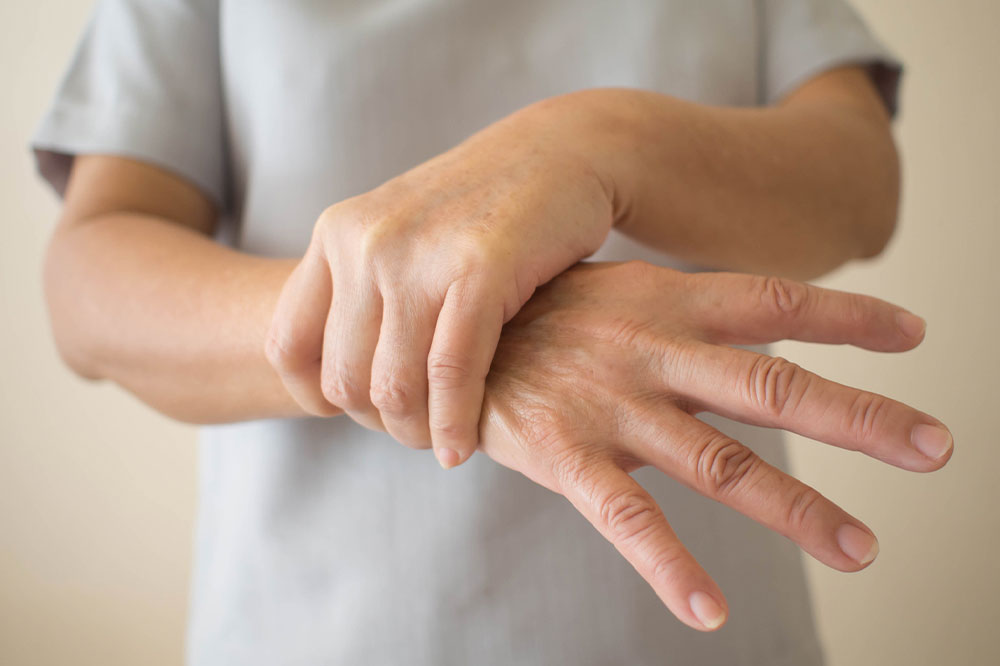12 early warning signs indicating the onset of Parkinson’s disease

Parkinson’s disease is a disorder that gradually affects the nervous system, potentially impacting areas controlled by the nerves. The symptoms of the disease may occur gradually and may show themselves until a much later stage. But to get the most out of treatments for Parkinson’s disease, it is crucial to diagnose the condition when it just begins. Therefore, here are 12 early warning signs that could help identify the condition early and slow its progression.
Tremors
One may experience tremors for several reasons, including low blood sugar, stress, anxiety, and the side effects of ongoing prescriptions. However, the symptom might also be a warning sign of Parkinson’s disease. One may notice the first signs of tremors in the limbs, such as hands and fingers. A person with Parkinson’s may also rub the thumb and forefinger back and forth, known as a pill-rolling tremor. Furthermore, the symptom may stop while performing tasks but resume at rest.
Bradykinesia
As one ages, one’s physical abilities may decline, resulting in decreased mobility. However, individuals with Parkinson’s may also experience this condition, called bradykinesia. This may cause difficulty in performing even basic tasks and take longer than usual to complete them. Furthermore, one may notice that one’s steps become shorter while walking, and one may also drag or shuffle one’s feet while trying to walk. Parkinson’s disease may also make it difficult for the person to get out of a chair.
Stiffness in the muscles
An individual may develop stiff muscles due to trigger factors such as injuries, insect bites, and the after-effects of exercise. But if an individual is in perfect health and still starts to notice the muscles turning rigid, one must consult an expert immediately. It could occur due to multiple health complications, including Parkinson’s disease. The muscle pain can also be annoying and limit the individual’s range of motion.
Restlessness while sleeping
Symptoms like sleepwalking and talking while sleeping are potential indicators of Parkinson’s disease. Studies show that the changes in brain mechanisms may affect an individual’s sleep patterns. One sign that may indicate the early onset of the disorder includes falling out of bed. The individual may also act out in dreams, such as suddenly kicking, punching, or jumping out of bed. Therefore, if one thinks one is susceptible to these warning signs or has a family member who may display these symptoms, one should speak to an expert immediately.
Hyposmia
The loss of smell (hyposmia) is a common symptom of various viral infections and other health complications. But it could also be an indicator of Parkinson’s disease. The individual may suddenly find it difficult to smell fragrances, foods, and other scents in the surroundings. If one experiences this symptom without any visible infections, it is best to consult an expert immediately.
Anxiety
Parkinson’s disease may affect the brain’s ability to create serotonin and dopamine – two brain chemicals responsible for managing one’s mood. Therefore, the alterations in the neurotransmitters may affect the organ’s ability to manage how one feels, which could lead to anxiety and depression. One might experience these symptoms as early as two to five years before being diagnosed with Parkinson’s.
Constipation
Constipation is usually triggered due to poor lifestyle choices such as eating unhealthy foods or ignoring the urge to pass stools. It could also be a side effect of ongoing treatments and mental health conditions like anxiety and depression. But it is best to let the doctor know about this symptom. Since Parkinson’s disease affects the nervous system, it could affect functions related to bowel function.
Restricted facial mimicry
When one develops Parkinson’s, one may notice that several muscles in the body start to work unusually. One of these regions includes the face, where the affected individual may experience a gradual stiffening. One might be able to identify these early warning signs if one notices less facial mimicry and lowered spontaneous smiling.
Tiny handwriting
A person’s writing may change as they get older due to factors like stiff hands, fingers, or deteriorated vision. If the writing has gotten much smaller than it used to be over a relatively shorter period, it could indicate the onset of Parkinson’s disease. The individual might notice that the size of the words on a page is tinier than usual and also crowded together. The smaller handwriting that results from Parkinson’s disease is known as micrographia.
Soft voice
Someone who speaks with a soft or low voice may do so out of habit. One may also have a chest cold or another virus. However, if one notices or is told by someone else that one’s voice has turned softer than usual or that one sounds breathy or hoarse, one should seek a doctor’s opinion. The reduction in the audibility of one’s voice is a potential early warning sign of Parkinson’s disease. Identifying it in its early stage may help get on a treatment plan to reduce and manage the progression of the disease.
Loss of automatic movements
There are many movements in the body that we can control, but some happen involuntarily. Parkinson’s disease can affect different areas of the body and cause a loss of these automatic movements. A few signs to look for include a reduction in involuntary blinking, decreased swinging of the arms while walking, and the inability to smile subconsciously.
Poor posture
An individual may notice a stoop in the way they stand due to pain in the back or spine from an injury or if they are sick. However, the onset of Parkinson’s disease may also affect one’s posture. One may notice a stoop in the body when standing or trying to sit upright. Furthermore, since the condition affects the nervous system, it could also affect an individual’s balance center and cause them to fall even without any underlying symptoms.









